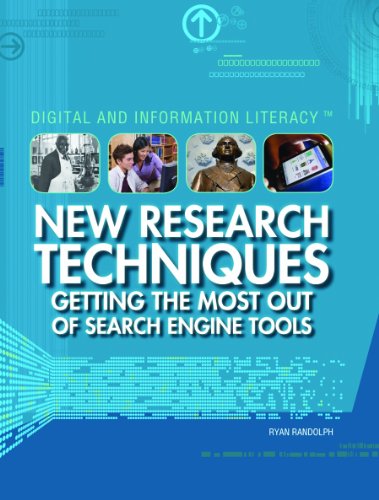-
Databases: Organizing Information
Greg Roza
Library Binding (Rosen Central, Aug. 15, 2010)Describes how databases work and how to use tables, files, and relational databases. S
S
-
Searching Online for Image, Audio, and Video Files
Adam Furgang
Library Binding (Rosen Publishing Group, Sept. 1, 2009)An introduction to ways of searching online for image, audio, and video files using the internet. Y
Y
-
Twitter and Microblogging: Instant Communication With 140 Characters or Less
Colin Wilkinson
Paperback (Rosen Central, Dec. 15, 2011)Explains how Twitter works and describes the history, techniques, and impact of blogs. U
U
-
Smart Machines and the Internet of Things
Ryan Nagelhout
Library Binding (Rosen Central, Jan. 15, 2016)Examines the Internet of things, covering such topics as the history of the Internet, smart homes, and how the technology could change people's lives. Z
Z
-
Creating Multimedia Presentations
Tamra B. Orr
Library Binding (Rosen Central, Sept. 1, 2009)Describes how to create a multimedia presentation, including adding graphs, images, sounds, and video, and how to integrate these elements to form an informative presentation. X
X
-
Creating Content: Maximizing Wikis, Widgets, Blogs, and More
J. Elizabeth Mills
Library Binding (Rosen Central, Jan. 15, 2011)Describes some of the many ways that users may generate Internet content, including blogs, Wikipedia, social networks, and sites for posting photographs and videos, and discusses Internet dangers and such activities to avoid as copyright violations.
-
Cited! Identifying Credible Information Online
Larry Gerber
Library Binding (Rosen Central, Jan. 15, 2018)Describes how to find and evaluate information on the Internet, including detecting biases, determining accuracy, and judging fairness. M
M
-
Understanding the World of User-Generated Content
Emily Popek
Library Binding (Rosen Central, Aug. 15, 2010)Describes how to use those parts of the Internet that are interactive, sometimes known as "Web 2.0," including Wikipedia, blogs, podcasts, video sharing, and other types of user-generated content. T
T
-
Incredible Projects Using 3D Printing
Joe Greek
Paperback (Rosen Young Adult, Jan. 1, 2015)Though they may sound like something out of science fiction, 3-D printers are not only real but also increasingly common. Popular with both the Maker Movement and businesses, the 3-D printer has multiple uses. Its great for making prototypes and creating cool projects. Some experts even believe that additive manufacturingor 3-D printing on the industrial levelis the wave of the future. Readers will learn about a variety of 3-D printing methods, weigh the pros and cons of 3-D printing, and discover 3-D printings applications in fields as diverse as fashion, food, and medicine. U
U
-
The Distortion of Facts in the Digital Age
Larry Gerber
Paperback (Rosen Central, Dec. 15, 2012)Explains what disinformation is, why and how people distort facts, the difference between fact and opinion, and how to deal with the distortion of facts in online information.
-
New Research Techniques: Getting the Most Out of Search Engine Tools
Ryan Randolph
Library Binding (Rosen Central, Jan. 15, 2011)Describes techniques for doing research on the Internet, including selecting search engines and tips for using them, accessing databases, and using other types of tools.
-
Copyright and Digital Ethics
Emily Popek
Paperback (Rosen Central, Jan. 15, 2011)The Internet brought about a total revolution in the world of information. Today, anyone with an Internet connection can access a wealth of information online. As our access to data increases, copyright laws struggle to keep up. This book examines how copyright law has been applied to online content, the emerging open source movement, fair use, proper citation practice, and the ethics of using and citing online information. It is an invaluable resource for todays students.